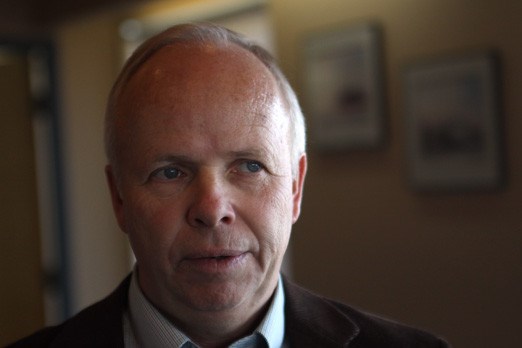Tim Heney says it’s hard to tell what grain traffic in Thunder Bay will look like next year, but he does believe it will be good.
There’s never been a seaway without the Canadian Wheat Board monopoly the CEO of Thunder Bay’s Port Authority said. More than 75 per cent of grain that comes through Thunder Bay on its way to markets in Europe, the Middle East and Africa is from the wheat board.
Now that the federal government plans to end the monopoly starting next August, Heney said he doesn’t know what the traffic will look like.
“It’s really hard to determine the impact,” Heney said Thursday.
That said, with every major grain player in Thunder Bay, making it the largest grain storage facility in North America, they might use the port more.
“Those companies will now be in charge of transportation as well as owning and selling grain. It’s really logical to assume they will use seaway to do that,” Heney said. “We certainly don’t see it as a decline in grain to Thunder Bay and there is some potential and some opportunities for more grain actually.”
Those opportunities are the result of projections that say markets in the Middle East and north Africa will see the largest growth in grain in the coming years Heney said.
“Those are both markets served by the seaway so we see grain being pretty strong into the future,” Heney said.
Those companies also have facilities in other parts of the seaway such as Quebec.
“When you own your own supply chain that’s going to be a big competitive advantage for you and I think they’re going to use it.”
While some people argue that ending the monopoly will see an increase in grain being shipped directly south, Heney said that might happen initially but farmers in the US will try and limit the amount of Canadian grain being shipped across the border.
Another possibility is Churchill, which currently relies on Wheat Board grain for most of its traffic. Heney said that port will need to diversify just like Thunder Bay has if it wants to survive.
“I guess what concerns us is some of the subsidies (the federal government) announced about Churchill to continue shipping grain through there. If they’re very competitive I'm not sure of the logic of subsidizing the route makes sense," Heney said.
